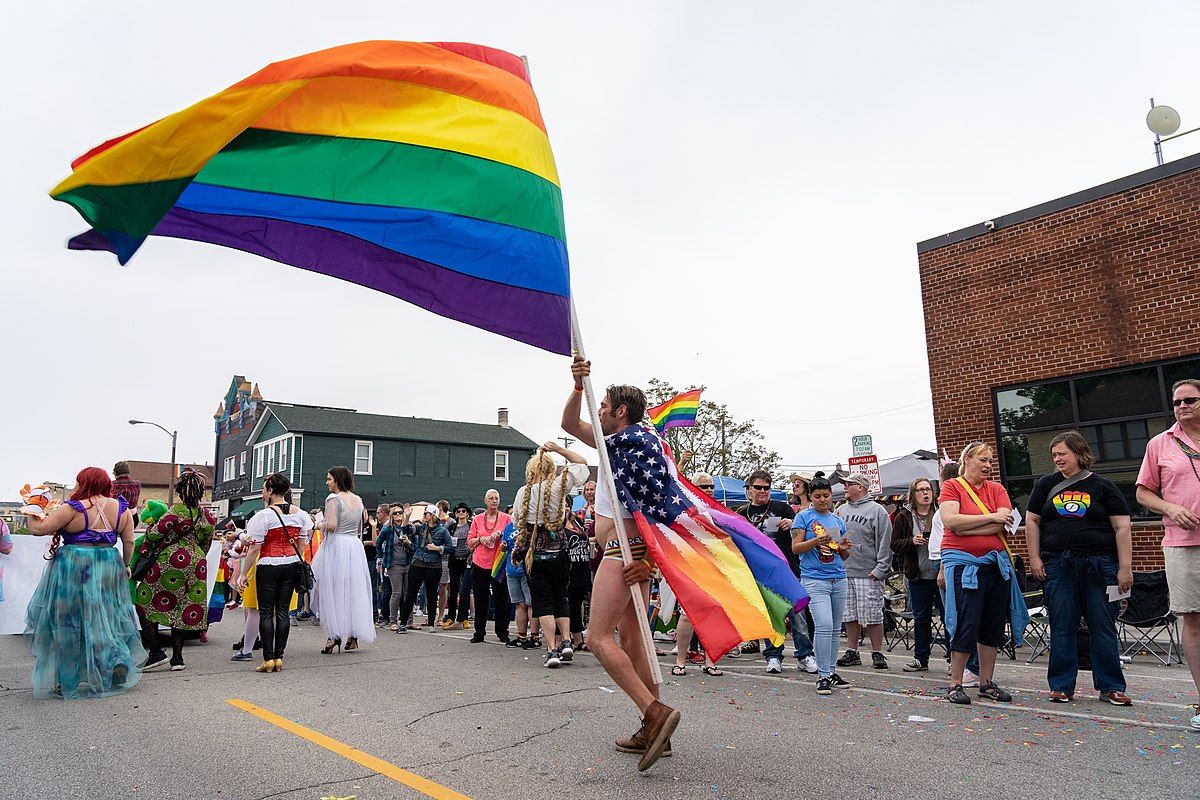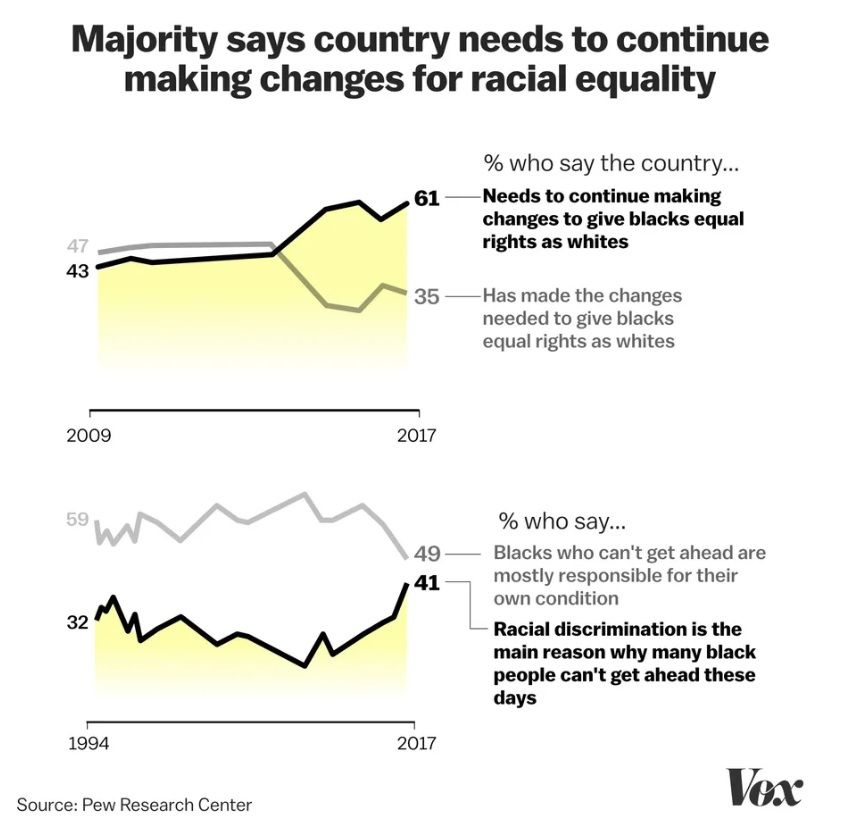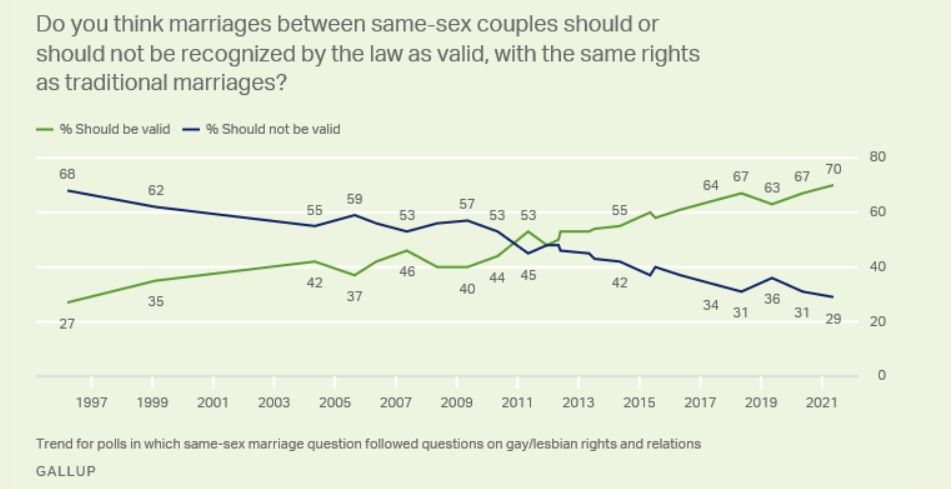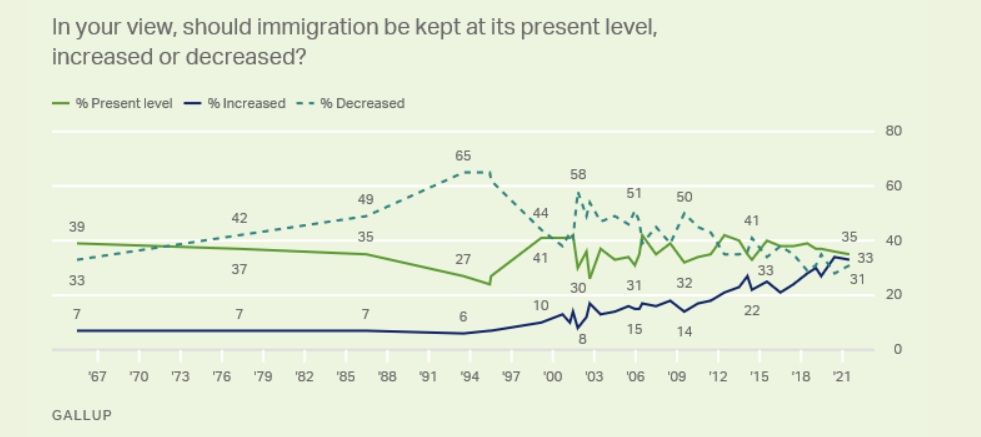What Do We Mean When We Say “Culture War?”

Hey all.
The phrase “culture war” has come to irk me more and more these last few days — I’m not really sure what I’m talking about when I use it, and I don’t know that anyone else is either. Broadly, it seems to refer to two related but separable subjects:
- Sociocultural changes happening within American society and our debates about those changes
- The right’s claims about those changes and our debates over how to navigate their attacks as a matter of political strategy
That might not seem like an important or illuminating distinction as given, but in the last few days, I’ve noticed a lot of well-meaning people arguing as though there’s nothing really at issue or at stake here beyond the wild claims the right and centrists sympathetic to their grievances have been making. Here’s one example:
Some elites felt like their elite circles moved left on language regarding race and gender, and they did not like it, so they declared that the entire country, all of politics, had veered dramatically left, with some even supporting state crackdowns on speech to try to stop it. https://t.co/AeHJxjafKW
— Nicholas Grossman (@NGrossman81) April 29, 2022
Now, I happen to think it’s true that elites anxious about happenings in their own institutions and lives have driven most of our cultural discourse and bolstered the right’s political project. But it’s also indisputably true that the country, led by white Democrats, has moved substantially to the left on social issues over the last decade. The right is reacting to real, profound, and positive shifts in American attitudes on nearly every cultural topic you might name, with the notable exception of abortion.



These are great developments. But it seems wrong to consider growing support for the basic equality and recognition of minorities as victories in a “war” being waged against the right or anyone else. That’s certainly the way the right wants the American people to see it. Behind the scenes, they argue — in board rooms and on school boards — there are savvy actors conspiring to force radical transitions upon the public. In reality, the companies, institutions, and bureaucratic figures they’re focused on are trying to catch up with genuine popular shifts they themselves don’t understand; Disney will do what it can to cash in on LGBTQ identity, but they’re not the source of growing acceptance and identification. Rather, these changes are exactly what you’d expect from a multicultural liberal society experiencing a revolution in the communication and transfer of new ideas; the right’s most literate and dangerous figures have appropriately focused their attacks on the new tech platforms and the doctrines of liberalism itself.
The endgame, as Jamelle Bouie wrote in a recent piece, is a less free, more unequal society. “Both the crusade against “critical race theory” and the slanderous campaign against L.G.B.T.Q. educators and education are as much about undermining key public goods (and stigmatizing the people who support them) as they are about generating enthusiasm for the upcoming midterm elections,” he wrote. “To be clear, this isn’t some secret. Christopher Rufo, a right-wing provocateur who helped instigate both the panics against “critical race theory” and against L.G.B.T.Q. educators in schools, has openly said that he hopes to destroy public education in the United States. “We are right now preparing a strategy of laying siege to the institutions,” he said last November in an interview with my colleague Michelle Goldberg. In a recent speech, delivered to an audience at the conservative Hillsdale College, Rufo declared that “to get universal school choice you really need to operate from a premise of universal public school distrust.”
That’s the “war” in the second sense, I suppose, but I’m still not sure the phrase is right even there. There are at least two combatants in any given conflict; as Bouie writes, the Democrats aren’t really fighting back. “With few exceptions (most notably Mallory McMorrow, a Michigan state lawmaker who loudly criticized and condemned one of her Republican colleagues for accusing her of attempting to “groom” and “sexualize” kindergartners), the Democratic Party has been conspicuously quiet as these panics metastasized, even as one of them — the attack on teaching the history of race in the United States — helped deliver the Virginia governor’s mansion to Republicans,” he writes. “The theory seems to be that Democrats can only lose if they engage this culture war, and that they’ll be on safer ground if they can deliver in Washington and run on their policy achievements without getting into the muck with Republicans.”
As Seth Cotlar illustrated in news clippings this past week on Twitter, that theory has governed the Democratic Party for most of the last 60 years; the phenomena we habitually frame as “culture wars” between two concrete sides are probably better understood as cycles of diffuse social change and organized right wing reaction that Democrats try to avoid getting too caught up within. And when they do inevitably get drawn in, they tend to shuffle to the right. The Biden administration has come under fire from Democratic candidates and lawmakers over the past week for the reversal of Title 42, a policy that allowed the Trump administration to expel migrants on the border as a bogus COVID safety measure. That’s what “war” between a Democratic Party "hijacked by extremists" and Republicans generally looks like in practice.
Reasons to Be Cheerful
Another unionization wave update — local to me this time.
Baltimore workers just unionized the FIRST Starbucks store in Maryland—and they did it UNANIMOUSLY!!!!
— SBWorkersUnited (@SBWorkersUnited) April 25, 2022
A Song
“Up With People” — Lambchop (2000)
Bye.
Nwanevu. Newsletter
Join the newsletter to receive the latest updates in your inbox.
